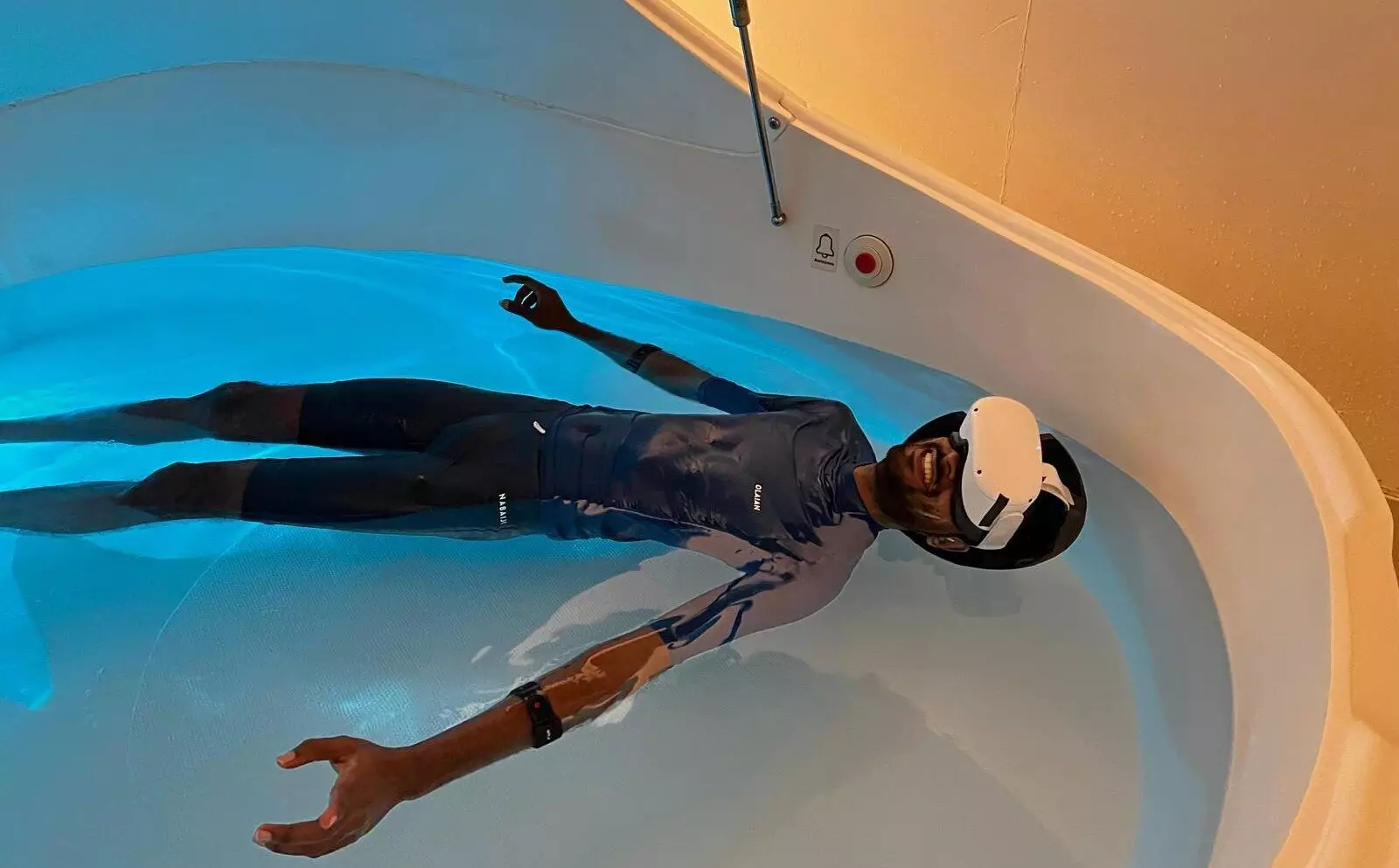Aquaphobia, or the fear of water, can significantly restrict an individual’s ability to engage in recreational activities and even lead to debilitating anxiety. Individuals suffering from this phobia often find themselves unable to partake in everyday experiences such as swimming, boating, or even just being near water sources. Understanding the profound impact of this fear, researchers at Monash University have embarked on an innovative journey to develop new methodologies to address and mitigate such anxieties through cutting-edge technology.
Recent advancements in human-computer interaction have paved the way for extended reality (XR) systems to present unique therapeutic opportunities. At Monash University, the Exertion Games Lab has taken a creative approach by integrating virtual reality (VR) with immersive environments to enhance therapy for individuals dealing with aquaphobia. By utilizing floatation tanks—a serene setting designed to facilitate relaxation—the researchers created a captivating escape designed to engage the mind while progressively introducing users to the concept of being in water. This blends virtual environments with real-world experiences, allowing participants to experience simulated water scenarios that help them acclimate to their fears.
The innovative water-inspired XR experience leverages the buoyancy of flotation tanks to create a tranquil environment, where participants can float relaxed, devoid of physical distractions. This controlled setting is vital for participants to focus on their psychological responses rather than physical discomfort. While equipped with a VR headset, they can immerse themselves in a carefully curated auditory and visual experience that softens their apprehension towards water. The experience is not merely passive; participants contribute to their interactions through bodily responses—like heart rates and subtle movements, which are monitored by specialized sensors integrated into the VR headset.
Ph.D. Candidate Maria Montoya, the lead researcher on this groundbreaking study, emphasizes the importance of creating interactive systems that allow safe engagement with water-related environments. She articulates, “By transforming the experience into something playful and rewarding, we provide an interactive journey where overcoming fears becomes a form of entertainment.” This productive fusion of therapy and play not only invites participants to confront their aquaphobia but also enables them to enjoy the journey, shifting focus from fear to engagement.
The digital narrative of the XR system takes participants through various fantastical water-themed landscapes, guided by a virtual character known as the ‘water spirit.’ This spirit plays a critical role, offering reassurance to participants, thereby instilling a sense of safety. As users traverse through this virtual world, they engage in a kind of exposure therapy, gradually acclimatizing to their contextual fear. The water spirit reminds participants to manage their heart rate intentionally, an exercise that can effectuate a positive feedback loop of relaxation and control in stressful situations.
The research conducted involved twelve individuals who reported aquaphobia. Through a series of structured steps, including recording baseline physiological data, the efficacy of the XR system was measured. The outcomes were encouraging, revealing a noticeable decline in anxiety levels during XR experiences compared to flotation without technology. Professor Florian “Floyd” Mueller, co-author of the study, noted the compelling data indicating that XR applications are indeed beneficial in therapeutic settings. Their analysis of heart rate variability underlined that participants found relief through storytelling and immersive engagement, underscoring that entertainment could positively influence therapeutic outcomes.
Through innovative integration of technology and therapeutic techniques, Monash University’s research introduces a promising avenue for those grappling with aquaphobia. With this playful XR system, people may have the opportunity to engage with their fears in a safe and enjoyable manner, encouraging them to reclaim the joy of water-based activities. As research continues to evolve, the potential application of XR technology in treating various psychological inhibitions will remain a marvelous area to explore, blending healing with imaginative experiences.


Leave a Reply